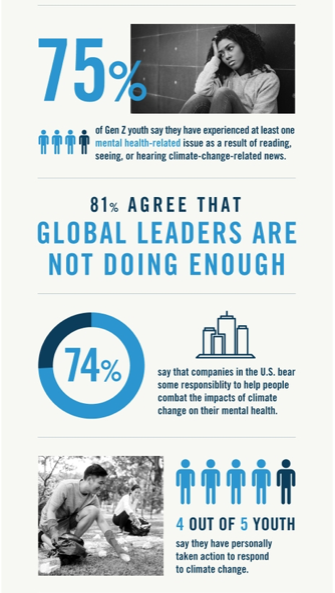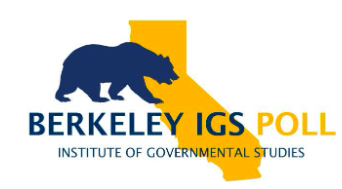Resources
Search below for resources covering the intersection of climate engagement, social science and data analytics.
RESULTS
Poll: Overwhelming Majority of American Voters Support Stronger Particle Pollution Standards
Voters want to see stronger clean air standards from the EPA, with annual and daily soot limits that meet the recommendations of the EPA’s scientific advisors. Voters reject the argument that stricter standards would hurt the economy and drive up energy prices. By a 74%-16% margin, voters support the EPA updating air pollution standards by placing stricter limits on soot. After learning that the EPA’s proposed new soot standards are not as strict as the standards recommended by the EPA’s scientific advisors, voters support moving to the stricter standards recommended by the EPA’s scientific advisors by a 65%-20% margin.
Climate Emotions Wheel
Using this wheel can help people identify their emotions regarding the climate crisis—and work with them. Emotions wheels have been a visual tool used by psychologists for decades to help people better understand and interpret their own feelings. This Climate Emotions Wheel is based on the research of Panu Pihkala at the University of Helsinki and particularly his 2022 paper Toward A Taxonomy of Climate Emotions. It is not intended to be comprehensive or definitive, and it is not to scale; positive emotions are not typically identified in most research as often as other emotions on this scale.
False climate change narratives undermine health sector engagement
Discussing the health impacts of climate change is a critical approach for furthering medicine’s mission—to improve health and accelerate equity. Health professionals are increasingly learning how climate change is harming their patients’ health. And, unsurprisingly, most respondents to a 2020 multinational survey felt a responsibility to educate the public and policy makers. In most nations “left” or “right” political ideology is a weak predictor of support for climate taxes or laws. Health professionals can contribute to collective action by reflecting and building on the existing consensus on climate change.
Historic Environmental Justice Victory: City of Los Angeles is creating a pathway to phase out existing oil and gas wells
Residents, community organizations, and health care practitioners organized for over a decade to protect the health of residents on the front lines of urban oil extraction in L.A. In January 2022, the Los Angeles City Council voted unanimously to draft an ordinance to prohibit all new oil and gas drilling and to phase out existing drilling operations throughout the City of Los Angeles. This resource is based on an interview with Wendy Miranda (she/they), a community leader with Communities for a Better Environment (CBE) and resident, about the historic victory. The organizing strategy to get this victory involved various lobbying efforts, rallies, press conferences, petition collections, a wide range of community/organization endorsements, phone banking, and social media outreach. Overall, frontline residents providing public comments and sharing their personal experiences were some of the strongest and most powerful tactics. STAND L.A. will continue to be part of the process to help draft an ordinance and direct the City of Los Angeles on how to lead a genuine community participation process. Miranda shares that this victory is proof that frontline communities can lead the change toward a just, equitable transition to a clean energy future.
Climate Health Master Class
Climate change increases the incidence of practically all forms of human disease. This series of lectures features field leaders in various aspects of climate change and human health, focusing on how different types of extreme weather events and patterns cause both acute, and chronic, morbidities and mortality. Scientists, clinicians and public health policy experts to generate an integrated and comprehensive picture of health threats posed by climate change.
American Climate Perspectives 2022: Are Americans Making the Climate and Health Connection?
Air Pollution Leads as a Health and Safety Concern: More Americans are concerned about air pollution (57%) than other climate change hazards. 50% of the survey respondents say severe storms spark concern. Despite heat being a leading cause of weather-related deaths, only 37% of respondents are concerned about heatwaves. While floods are the second deadliest weather-related climate impact, only 33% of Americans report concern.
Poll: Climate change is taking a toll on Gen Z mental health while also inspiring youth to take action
A significant majority of Gen Z youth (75% nationwide, 80% in California) have experienced a mental health-related issue, such as anxiety, stress, and/or feelings of being overwhelmed as a result of reading, seeing, or hearing news about climate change.
- Despite these mental health challenges, four out of five youths (81% nationwide, 86% in California) say they have personally taken action to respond to climate change.
- Young people are stepping up to make a difference by relying less on plastic products (54% nationwide, 64% in California), reducing use of electricity (45% nationwide, 52% in California), and working to conserve water (38% nationwide, 53% in California).
- A vast majority of respondents (81% nationwide, 84% in California) agree that global leaders are not doing enough to combat climate change.
- Three quarters of youth (74% nationwide, 74% in California) say they agree that companies in the U.S. bear some responsibility to help people combat the impacts of climate change on their mental health.
- A majority (85% nationwide, 86% in California) believe it is important to support brands/companies that are sustainable and/or environmentally friendly.
Poll: Americans Report Mental Health Effects of Climate Change, Worry About Future
58% of adults believe climate change is already impacting the health of Americans and nearly half (48%) agree that it’s impacting the mental health of Americans. Half of adults (51%) are anxious about climate change’s impact on future generations.
- Adults are more were worried about the impact of climate change on the planet (55%) than on their mental health (39%). They were split on how news about climate change affected their mood, with 42% saying it affected them some or a lot, and 43% not much or not at all.
- Young people were more anxious about climate change. Of those aged 18-34, 66% were anxious about its effect on the planet, 51% were worried about its impact on their mental health, and 59% worried about its impact on future generations. They were also more likely to believe it was already having an effect on the health (64%) and mental health (57%) of Americans.
- White people were the least likely to report anxiety over the impact of climate change on the planet (52%) versus Hispanics (62%), Black people (65%) or people of other ethnicities (66%). Those in the northeast (57%) and western region (58%) of the country reported being more worried about the effect of climate change on the planet than those in the Midwest (50%) and the South (54%).
Poll: Majorities see California’s changing climate as serious health and safety threats
Most California voters consider air pollution and extreme heat to be serious threats to the health and safety of their families; the majority also support the new state law requiring composting of all food waste. 64% of voters in the state say that extreme heat poses a “very” or “somewhat” serious threat to the health and safety of themselves and their family, and 63% say the same about air pollution. The poll also finds a great deal of support for the new California law requiring the composting of food waste in order to reduce pollution in landfills, with voters favoring the new policy by a 68%-24% margin.
Mental Health and Our Changing Climate: Impacts, Inequities, Responses
The American Psychological Association and ecoAmerica are pleased to offer this update of our 2017 report, Mental Health and Our Changing Climate. Since that report appeared, concerns about the mental health impacts of climate change have grown among health professionals, policymakers, and the public. Research on climate and health has accelerated and many new findings have emerged. With this update, we aim to provide readers with the information and guidance they need to stay current in this field and take effective action.
Pagination
- Previous page
- Page 2
- Next page






